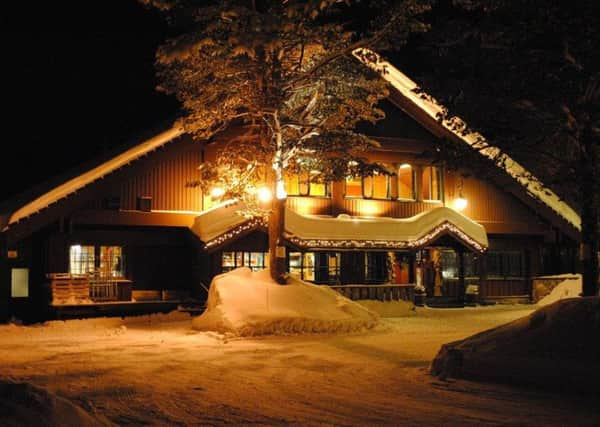Gaelic row over Scotland's hygge campaign


But the Gaelic word picked by VisitScotland to promote its own version of Danish hygge - a way of life characterised by candlelight, warm glows and logs on the fire - appears to have ruined the moment for some.
The nation’s tourism body selected “còsagach” to market this lucrative lifestyle trend to visitors in 2018. But many Gaelic speakers said they had never heard of the word and questioned its choice given it defines something “full of holes and crevices.”
Advertisement
Hide AdVisitScotland said its meaning has evolved over time to define snug, sheltered and cosy but other Gaelic speakers thought of it as a damp, mossy place where a wood louse - corra-chòsag - might be found.
Mark Wringe, senior lecturer and programme lead for Gaelic language and culture at Sabhal Mòr Ostaig on Skye, claimed còsagach was not a good choice for the campaign.
Mr Wringe said: “I think I can see why Visit Scotland have done this, I can see the concept. There are great places in Scotland for tourist to go and get warm and cosy down with a good book. Why wouldn’t you want to try and turn the Scottish weather into something that you would look forward to?
“I also have no complaint about Gaelic being used in marketing - but get it right. It’s is not a language that is dead and gone. Something like this can be seen as insulting to Gaelic speakers.
“You have to search a few dictionaries which give a possible meaning. It’s a definition that comes at the end of the list and that is a warning in itself. It’s not common.”
Mr Wringe said còsagach was likely to have been chosen by Visit Scotland given it sounds similar to cosy.
Advertisement
Hide AdThe correct word to describe cosy was ‘seasgair’ but this would be harder for a non-Gaelic speaker to pronounce correctly, he added.
Catriona Black, author of Sly Cooking, a book which revives lost Gaelic words from South Uist and Eriksay, said she had never heard of còsagach before the Visit Scotland campaign.
Advertisement
Hide AdShe added: “It’s great that VisitScotland is thinking hard about promoting Scotland through Gaelic, but this feels like a job half-done.
“I’d love to see them bring on board professional translators and lexicographers to put together a package of unique, tourist-friendly Gaelic concepts to sell what makes our country special. It could be really fabulous and others will want to copy us, instead of the other way round.”
Àdhamh Ó Broin, a Gaelic consultant who has worked with the Outlander cast, speaks three Gaelic dialects.
He added: “My immediate reaction was that I didn’t recognise the word in this context but that the root of it was familiar, used in a word for a woodlouse, corra-chòsag
“Còsagach does seem a bit like it’s been plucked from the air and doesn’t carry any immediate connotation of warmth.
“If they have consulted Gaelic speakers on it, then of course that’s fair enough.
Advertisement
Hide AdVisitScotland defined còsagach as a “word of Scottish origin” in its press announcement with no mention of Gaelic in the statement.
It consulted its Gaelic-speaking staff over the campaign with the organisation now having a Gaelic Tourism Strategy Co-ordinator.
Advertisement
Hide AdChris Greenwood, senior tourism insight manager at VisitScotland, said: “Còsagach is an old Gaelic word which originally meant ‘full of holes or crevices’ but over time has evolved to mean ‘snug, sheltered or cosy’.
“In researching our Trends 2018 paper, we weren’t looking for a direct translation of ‘cosy’ but a word that encompassed the essence of that feeling which would connect with consumers, whilst recognising the Gaelic language which is an integral part of Scotland’s culture.”
